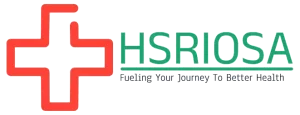In the realm of modern healthcare, one of the most transformative developments has been the advent of personalized medicine. This innovative approach tailors medical treatment to the individual characteristics of each patient, often using genetic information as a key determinant. Personalized medicine, also known as precision medicine, is not just a futuristic concept but an emerging reality that promises to enhance the effectiveness of treatments, reduce adverse effects, and potentially lower healthcare costs.
The Evolution of Personalized Medicine
The concept of personalized medicine has evolved significantly over the past few decades. Traditionally, medical treatments were designed with a “one-size-fits-all” approach, where the same medication and dosages were prescribed for all patients with a specific condition. This method, however, does not account for the significant variability among individuals in terms of genetics, lifestyle, environment, and other factors that influence health and disease.
The Human Genome Project, completed in 2003, marked a significant milestone in the field of genetics and personalized medicine. By mapping the entire human genome, researchers uncovered a wealth of information about the genetic basis of diseases and the genetic variability among individuals. This project laid the groundwork for developing genetic tests that can identify individual susceptibilities to diseases and predict responses to various treatments.
The Role of Genetic Information
Genetic information plays a crucial role in personalized medicine. By analyzing a patient’s genetic makeup, healthcare providers can gain insights into the risk of developing certain diseases, the likely progression of these conditions, and the most effective treatment options. Here are some key ways in which genetic information is being utilized in personalized medicine:
- Disease Risk Assessment: Genetic testing can identify mutations and variations that increase an individual’s risk of developing specific diseases. For example, mutations in the BRCA1 and BRCA2 genes are associated with a higher risk of breast and ovarian cancers. Individuals with these mutations can undergo more frequent screenings and take preventive measures to reduce their risk.
- Pharmacogenomics: This field studies how genes affect a person’s response to drugs. By understanding a patient’s genetic profile, doctors can prescribe medications that are more likely to be effective and cause fewer side effects. For instance, certain genetic variations can influence how patients metabolize drugs like warfarin, a common blood thinner, allowing for more precise dosing and reducing the risk of adverse reactions.
- Targeted Therapies: Personalized medicine has paved the way for targeted therapies, which are designed to specifically attack cancer cells based on their genetic characteristics. Drugs like trastuzumab (Herceptin) target HER2-positive breast cancer cells, providing a more effective treatment with fewer side effects compared to traditional chemotherapy.
- Gene Therapy: Advances in genetic engineering have opened up possibilities for gene therapy, where defective genes are replaced or repaired to treat genetic disorders. Conditions such as cystic fibrosis, hemophilia, and certain types of muscular dystrophy are being targeted for gene therapy treatments.

Case Studies and Real-World Applications
Numerous success stories highlight the potential of personalized medicine to transform healthcare:
- Oncology: In cancer treatment, personalized medicine has made significant strides. For example, non-small cell lung cancer patients with specific genetic mutations, such as EGFR or ALK, can receive targeted therapies like erlotinib or crizotinib, which have shown to be more effective than traditional chemotherapy.
- Cardiology: Genetic testing is increasingly used to identify patients at risk for inherited cardiac conditions, such as hypertrophic cardiomyopathy or familial hypercholesterolemia. Early identification allows for proactive management, lifestyle modifications, and appropriate interventions to prevent adverse outcomes.
- Pharmacogenomics in Psychiatry: Personalized medicine is also making its mark in psychiatry. Genetic tests can help determine the most suitable antidepressant or antipsychotic medication for a patient, reducing the trial-and-error process and improving treatment outcomes.
Challenges and Ethical Considerations
While personalized medicine holds great promise, it also presents several challenges and ethical considerations:
- Data Privacy: The use of genetic information raises concerns about data privacy and security. Ensuring that genetic data is protected from unauthorized access and misuse is paramount to gaining public trust.
- Cost and Accessibility: Genetic testing and personalized treatments can be expensive, raising concerns about accessibility and equity in healthcare. Efforts are needed to make these advancements more affordable and widely available.
- Ethical Implications: The potential for genetic discrimination by employers or insurers is a significant ethical concern. Legislation such as the Genetic Information Nondiscrimination Act (GINA) in the United States aims to protect individuals from such discrimination, but ongoing vigilance is required.
- Clinical Implementation: Integrating personalized medicine into routine clinical practice requires substantial changes in healthcare infrastructure, including training for healthcare providers and developing standardized protocols for genetic testing and data interpretation.
The Future of Personalized Medicine
The future of personalized medicine looks promising, with ongoing research and technological advancements driving the field forward. Key areas of development include:
- Artificial Intelligence (AI) and Big Data: AI and machine learning algorithms are being used to analyze vast amounts of genetic data, identify patterns, and predict disease outcomes. These technologies can accelerate the discovery of new biomarkers and therapeutic targets.
- CRISPR and Gene Editing: The CRISPR-Cas9 technology has revolutionized genetic engineering, allowing for precise editing of the genome. This technology holds the potential to correct genetic defects and treat a wide range of genetic disorders.
- Integrative Approaches: Combining genetic information with other data sources, such as environmental factors, lifestyle, and microbiome composition, can provide a more comprehensive understanding of health and disease. Integrative approaches will further enhance the precision and effectiveness of personalized medicine.
Conclusion
Personalized medicine represents a paradigm shift in healthcare, offering the potential for more effective and tailored treatments based on individual genetic profiles. While challenges remain, the benefits of personalized medicine in improving patient outcomes and advancing our understanding of diseases are undeniable. As research continues to unfold and technology advances, personalized medicine is poised to become an integral part of healthcare, transforming the way we diagnose, treat, and prevent diseases.




